
At the Payer Exchange Summit V, sponsored by the Community Oncology Alliance, oncologists and payers came together to discuss the role of collaboration and data sharing for the successful implementation of the Oncology Care Model.

At the Payer Exchange Summit V, sponsored by the Community Oncology Alliance, oncologists and payers came together to discuss the role of collaboration and data sharing for the successful implementation of the Oncology Care Model.

At the Payer Exchange Summit V, sponsored by the Community Oncology Alliance (COA), 2 employer groups and a provider participated on a panel to provide practical insight into the extraordinary challenges and decisions faced by employers and employees with a cancer diagnosis.
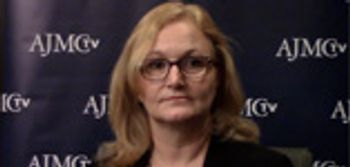
When transitioning towards value-based oncology, large employers should look to value-based models that have worked for other conditions, said Karen van Caulil, PhD, president and CEO of the Florida Health Care Coalition. These successful payment models include patient-centered medical homes, bundled payments, and accountable care organizations.
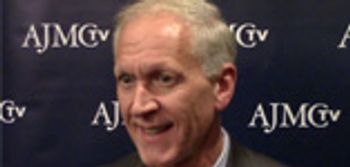
Many oncology practices are still trying to understand the new Oncology Care Model (OCM) structure and focus on data reporting as they simultaneously prepare to adapt to the Merit-based Incentive Payment System (MIPS), said Barry Russo, CEO of The Center for Cancer & Blood Disorders.

What are some of the challenges that clinical practices will face as they implement the Medicare Oncology Care Model (OCM)? What are some of the strategies that have worked for practices using similar payment models? These were some of the questions discussed at the Payer Exchange Summit V.

At the Payer Exchange Summit V, sponsored by the Community Oncology Alliance, held October 24-25, 2016, in Tyson’s Corner, Virginia, Bruce Gould, MD, presented an overview of how cancer care has improved over the years, what the challenges are, and how practices can adapt to payment reform.
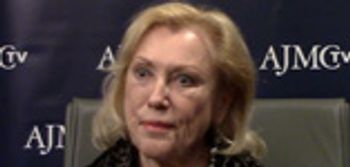
Employers face tough decisions about rising costs, high-quality care, coordination of benefits, and workplace accommodations when employees are diagnosed with cancer, but they will always want to support those employees as best they can, according to Marianne Fazen, PhD, president and CEO of the Texas Business Group on Health.
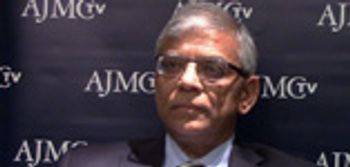
Adopting the Oncology Care Model (OCM) is a challenging task for oncology practices that have to redesign their practices, but the shift from volume-based to value-based care is the way of the future, said Kashyap Patel, MD, of the Carolina Blood & Cancer Center.
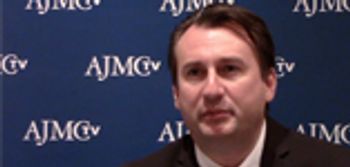
The biggest challenge facing oncologists in 2016 is the Medicare Part B demonstration that CMS announced, Lucio Gordan, MD, of Florida Cancer Specialists, said at the Community Oncology Alliance's 2016 Community Oncology Conference.

Pharmaceutical industry experts provide an overview of the highly complex biosimilar development process at The Community Oncology Conference: Innovation in Cancer Care, held in Orlando, Florida.

Everyone in healthcare is currently grappling with what payment reform will look like in the coming years, and oncology is no exception. Payers, providers, and health policy experts reviewed ongoing changes in the healthcare system and shared their vision on what the future would look like.

Patients and providers often have very different views of goals and values when it comes to treatment, so healthcare could benefit from figuring out how to systematize the shared decision making experience, Alan Balch, PhD, chief executive officer of the National Patient Advocate Foundation, said at the Community Oncology Alliance's 2016 Community Oncology Conference.

Representatives from 3 clinics that successfully participated in the Commission on Cancer accreditation process for the Oncology Medical Home model participated in a panel discussion on the first day of The Community Oncology Conference: Innovation in Cancer Care.
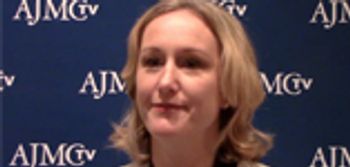
There are a number of models that look at innovating payments and focus on care delivery changes in oncology that are a positive step forward for patients, Debra Patt, MD, MPH, MBA, director of public policy at Texas Oncology, said at the Community Oncology Alliance's 2016 Community Oncology Conference.

On the first day of The Community Oncology Conference: Innovation in Cancer Care, held in Orlando, Florida, April 13-15, 2016, oncologists discussed how their practices are coping with the transition toward quality- and value-based reimbursement.
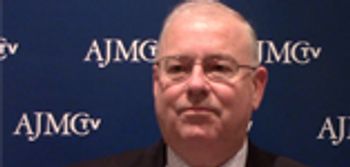
Many value assessment frameworks are still in their infancy and while the American Society of Clinical Oncology (ASCO)'s framework is still getting input and being adjusted, it has started an important conversation, Stephen Grubbs, MD, vice president for clinical affairs at ASCO, said at the Community Oncology Alliance's 2016 Community Oncology Conference.

Although there have been a number of new value calculators created recently, UnitedHealthcare does not plan to use any just now. Instead, it will continue covering regimens recommended by the National Comprehensive Cancer Network and in a few years the company will use data from its prior authorization tool to analyze performance of regimens, explained Lee Newcomer, MD, MHA, senior vice president, Oncology, Genetics and Women's Health, UnitedHealthcare.

The Community Oncology Alliance (COA) created its Payer Exchange Summit to get payers who are thinking about getting involved in oncology payment reform or want to know what to do exposed to successful pilots, explained Ted Okon, MBA, executive director of COA.

At the Payer Exchange Summit on Oncology Payment Reform, hosted by the Community Oncology Alliance, Daniel McKellar, MD, who chairs the Commission on Cancer, insisted on meaningful feedback from the community to ensure adequate transformation of practices into a medical home.

Payer—provider teams presented updates on their cost-saving pilot projects and looked to the future of these models in oncology care.

A late afternoon session on the first day of the 2015 Community Oncology Conference was a panel discussion called, "The Pathway Conundrum: How Many Do We Need and How Restrictive?"

Historically, people talk about pathways as if they are an answer, but they are really just one component to cancer care delivery, said Laura Long, MD, MPH, president at TheLongView, PC.

A cancer diagnosis is a very emotional experience, and besides for lifestyle issues, medications are one of the best ways to fight the disease, according to Jan Berger, MD, MJ.

The panel discussion, "Tackling Advanced Care Planning in Payment Reform: People and Politics" at the 2015 Community Oncology Conference, included a provider who is an active proponent of advanced care planning (ACP), a program director at a nonprofit health insurance company, and a healthcare consultant who until recently worked for a big health plan.

A general session at the Community Oncology Conference, Community Oncology 2.0, Moving Forward on Payment Reform, was a panel discussion that saw participation by 2 providers and a payer.

With the rising prices of innovative oncology treatments, many of which fall under specialty pharmaceuticals, curbing the cost of care is high on the agenda of healthcare providers.
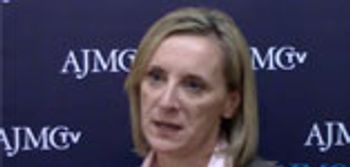
One of the challenges providers will face in the new Oncology Care Model that CMS announced earlier this year is measuring quality and meeting quality standards under, according to Patti Forest, MD, MBA, senior medical director of network quality and performance at Blue Cross Blue Shield of North Carolina.
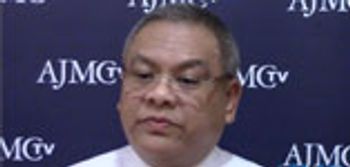
Given the high cost of oncology medications, many specialty pharmacies have dedicated teams to help patients overcome the financial burden, said Kirby Eng, RPh, executive director of clinical oncology management services at Onco360.

259 Prospect Plains Rd, Bldg H
Cranbury, NJ 08512
© 2025 MJH Life Sciences®
All rights reserved.
